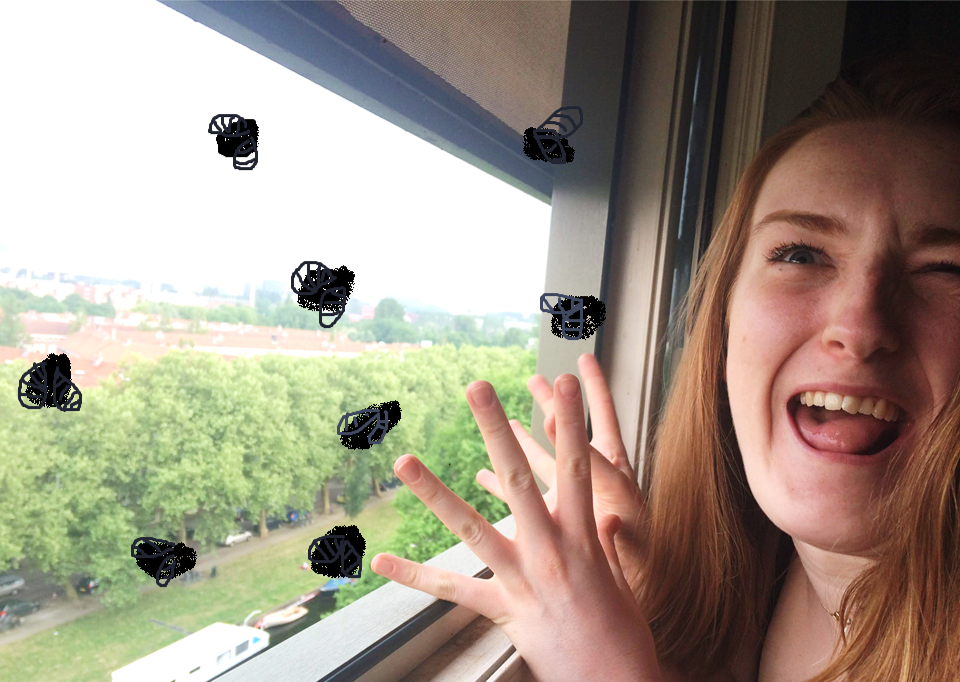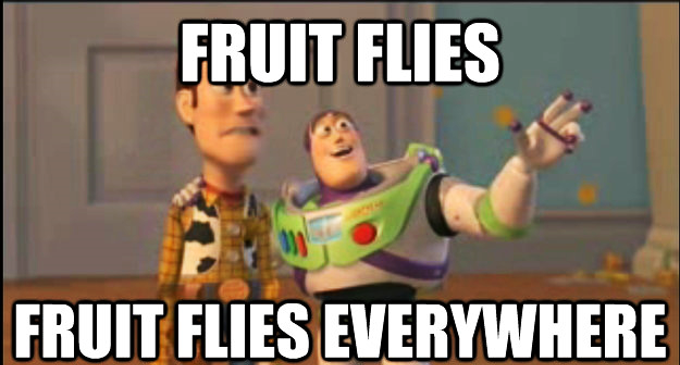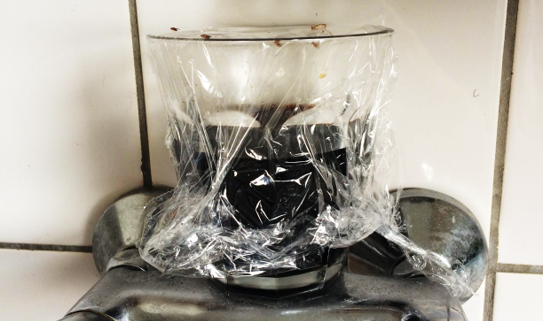The problem
Jas and Morgana care deeply about animals. Morgana is a vegan after all. Did you know?
But one day, they awoke to discover their flat in a hostage situation. They had been held hostage by flies. Probably hundreds of them.
There was obviously a moral conflict here. We had to find a way to persuade the swarm to leave our kitchen. After 10 minutes of Googling, it was established that we could not do this ethically, and our next Google search asked the best way to kill as many of these pests as possible.

The solution
If we were going to kill these flies, we wanted to find a way that was more ‘au naturel’ than buying an unnecessary, toxic product from the shop. We wanted to REUSE something that we already had in the flat.
The internet lists…
-Eucalyptus plant/ oil; spray
-Non-toxic home-made ribbons
-Vinegar traps- apple cider or balsamic
We had all the ingredients for option Number Three (Balsamic vinegar- that’s literally it.) so we went for it.
To make your epic fly-trap death pit:
1.Find a wide glass jar or cup
2. Fill with balsamic vinegar and a bit of water to dilute
3. Cover the jar with something sealed (a cloth and elastic bands for example), beeswax wraps are becoming a thing also. We had to use cling film on such short notice- the flies were winning.
4. Watch flies hurl themselves in their millions into the tasty tasty jar, and revel in your spoils of war (Jas gets particularly bloodthirsty during step four)

Organically, of course.
So, if you try and look up what exactly is ‘bad’ in the chemical products used in your kitchen and bathroom, you are hit with a barrage of health websites discussing the presence of ‘toxins’. What toxins actually are is disputed, but they are generally defined as ‘bad’ chemicals that will eventually become a burden on your body if not filtered out by your kidneys or liver. The CDC found an average of 212 extra chemicals (than expected organic matter) in each Americans blood and urine, including bisphenol A (food packaging plastic) and triclosan (in hand soaps and toothpaste).
If something as resilient as your liver can’t handle cleaning products, it’s safe to say that these products are not the best for the outside world either. Shop-bought bug sprays work so well because they are literal poison. And sold in plastic bottles too.

Those little brown specks on the top? Yep, those are flies
Evaluation
This method works a TREAT and our kitchen was clear again after one night. Sometimes life happens, and we have to work with it. Even though the flies messed with our kitchen, we don’t have to cause unnecessary damage to the environment disposing of them. Plus, our mighty balsamic weapon also makes a great salad dressing.
Extra notes
As our loyal followers will know, on Day 15 of the challenge, Morgana and Jas made their own toothpaste out of coconut oil and bicarbonate of soda, and three days in we thought we'd give you a little update:
Our teeth don't feel bad. Not achy, not fuzzy, or any other feeling that is a signal you are not brushing enough, but we can feel them. We are more aware of our teeth. It's a bit weird. For now, we have decided to switch back to toothpaste that has had some kind of authoritative approval and when our next tube runs out, we'll order the next most eco-friendly one possible.





